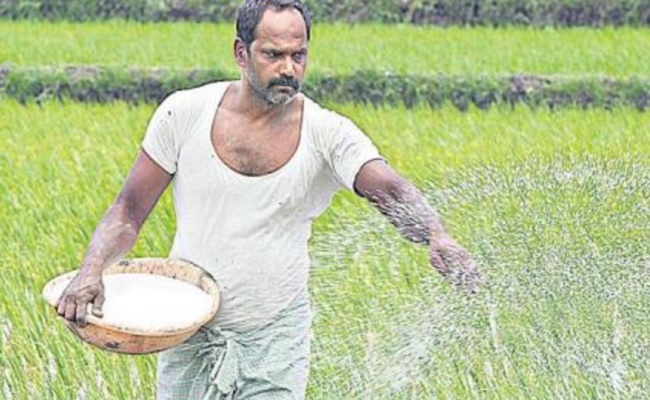
At a time when farmers of Punjab, Haryana and other northern states are up in arms against the new farm legislations, the silence by Telangana farmers has been surprising.
A variety of factors are keeping Telugu farmers away from the protests.
The difference in agricultural pattern and marketing mechanism compared to Punjab and Haryana, lack of leadership among farmers, various pro-farmer schemes being implemented by the state governments and the different viewpoints over the new legislations are believed to be the reasons for ryots not taking to streets.
Telangana saw no major protests when the All India Coordination Committee of Farmers Movements called a nationwide strike in September to protest the passage of three bills in Parliament.
The legislation allows the farmers to sell their produce outside the government-run Agricultural Produce Market Committee (APMC) regulated marketing yards.
States like Punjab and Haryana have strong government procurement infrastructure. Since farmers in these states fear that the government may do away with APMC procurement process as well as the system of Minimum Support Price (MSP), they are on warpath.
However, unlike agriculturists in Punjab and Haryana who own 10-15 acres of land, their counterparts in Telangana are small farmers who own 1-2 acres of land.
Most of the farmers in Telangana directly sell their produce to traders or customers.
"There is big difference in farming between Punjab, Haryana and states like Telangana and Andhra Pradesh. The issues and needs of the farmers of the two regions are entirely different," said V. Naveen Kumar, a social entrepreneur, who is the founder and managing director of NaPanta, a mobile app catering to farmers in both the Telugu states.
Food Corporation of India (FCI) data from 2015 to 2020 shows that nearly a quarter of farmers in Telangana did not access the marketplace for MSP fixed by the Centre.
While rice procurement by FCI averaged between 95 per cent to 79 per cent in Punjab, it averaged between 77 per cent and 51.8 per cent in Telangana.
The opinion is also divided among farmers over the legislations. Farmers, who depend on government-run market yards, are apprehensive but are unable to register their protest due to lack of unity and strong leadership.
"Farmers' organizations are not every active these days. They have not yet drawn a protest plan. Maybe the Covid-19 pandemic is the reason," Murali Krishnam Raju, a farmer, told IANS.
He, however, believes that the farm legislations have some good provisions for farmers. He said the government should reconsider those aspects which could affect the interests of farmers.
Another farmer Bandaru Srinivas pointed out that the imports of agriculture commodities by the government before every agriculture season is affecting the farmers. "Farmers are not getting the MSP because of this policy by the government," he said.
Another reason why farmers are not agitating path is various pro-farmer schemes being implemented by the government in Telangana.
The Telangana Rashtra Samithi (TRS) opposed the new farm bills and alleged that they were aimed at benefiting corporates. Analysts say this stand by the TRS government reassured the farmers in the state.
Farmers are availing the benefits of 'Rythu Bandhu' under which the state government is providing Rs 10,000 every year as investment support per acre.
Farmers are also happy with the government for procuring entire paddy and maize in their villages during the Covid-19 pandemic.













